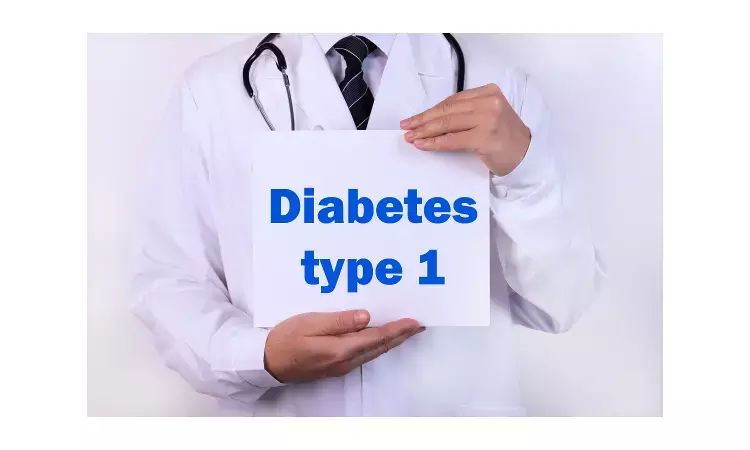- Home
- Medical news & Guidelines
- Anesthesiology
- Cardiology and CTVS
- Critical Care
- Dentistry
- Dermatology
- Diabetes and Endocrinology
- ENT
- Gastroenterology
- Medicine
- Nephrology
- Neurology
- Obstretics-Gynaecology
- Oncology
- Ophthalmology
- Orthopaedics
- Pediatrics-Neonatology
- Psychiatry
- Pulmonology
- Radiology
- Surgery
- Urology
- Laboratory Medicine
- Diet
- Nursing
- Paramedical
- Physiotherapy
- Health news
- Fact Check
- Bone Health Fact Check
- Brain Health Fact Check
- Cancer Related Fact Check
- Child Care Fact Check
- Dental and oral health fact check
- Diabetes and metabolic health fact check
- Diet and Nutrition Fact Check
- Eye and ENT Care Fact Check
- Fitness fact check
- Gut health fact check
- Heart health fact check
- Kidney health fact check
- Medical education fact check
- Men's health fact check
- Respiratory fact check
- Skin and hair care fact check
- Vaccine and Immunization fact check
- Women's health fact check
- AYUSH
- State News
- Andaman and Nicobar Islands
- Andhra Pradesh
- Arunachal Pradesh
- Assam
- Bihar
- Chandigarh
- Chattisgarh
- Dadra and Nagar Haveli
- Daman and Diu
- Delhi
- Goa
- Gujarat
- Haryana
- Himachal Pradesh
- Jammu & Kashmir
- Jharkhand
- Karnataka
- Kerala
- Ladakh
- Lakshadweep
- Madhya Pradesh
- Maharashtra
- Manipur
- Meghalaya
- Mizoram
- Nagaland
- Odisha
- Puducherry
- Punjab
- Rajasthan
- Sikkim
- Tamil Nadu
- Telangana
- Tripura
- Uttar Pradesh
- Uttrakhand
- West Bengal
- Medical Education
- Industry
Type 1 Diabetes incidence significant among adults, contrary to belief

Type 1 Diabetes (T1D), once known as juvenile diabetes or insulin-dependent diabetes, is a chronic condition in which the pancreas produces little or no insulin. The global epidemiology of childhood-onset T1D is well characterized, with estimates updated biannually in the International Diabetes Federation (IDF) Diabetes Atlas.
The epidemiology of adult-onset T1D incidence is, in contrast, less well characterized due to the historic focus on T1D as a common childhood-onset disease, challenges in distinguishing adult-onset T1D from type 2 diabetes (T2D), and a lack of national diabetes registries that include T1D incidence across the life span.
A systematic review in Diabetes Care suggests that the incidence of T1D in adulthood is significant and highlights the need to distinguish between T1D from T2D in adults so the management respond to the true burden of T1D in adults is well handled.
A systematic review included MEDLINE, Embase, and the gray literature, through 11 May 2021, was undertaken. Study assessed the incidence of adult-onset (≥20 years) T1D, by country, from available data. All population-based studies that reported on adult-onset T1D incidence and published from 1990 onward in English were considered. With the search researchers identified 1,374 references of which 46 were included for data extraction. Estimates of annual T1D incidence were allocated into broad age categories (20–39, 40–59, ≥60, or ≥20 years) as appropriate.
Researchers observed the following patterns
• There is a paucity of data, particularly in low- and middle-income countries.
• The incidence of adult-onset T1D is lowest in Asian and highest in Nordic countries.
• Adult-onset T1D is higher in men versus women.
• It is unclear whether adult-onset T1D incidence declines with increasing age.
• it is unclear whether incidence of adult-onset T1D has changed over time.
Researchers concluded that "From available data, this systematic review suggests that the incidence of T1D in adulthood is substantial and highlights the pressing need to better distinguish T1D from T2D in adults so that we may better assess and respond to the true burden of T1D in adults."
Limitation of the study also stataes results were generalizable to high-income countries, and misclassification of diabetes type cannot be ruled out.
Reference: https://doi.org/10.2337/dc21-1752
Keywords: type 1 diabetes, type2 diabetes, childhood-onset disease, juvenile diabetes, insulin-dependent diabetes, national diabetes registries, International Diabetes Federation (IDF) Diabetes Atlas, Diabetes Care.
Medical Dialogues consists of a team of passionate medical/scientific writers, led by doctors and healthcare researchers. Our team efforts to bring you updated and timely news about the important happenings of the medical and healthcare sector. Our editorial team can be reached at editorial@medicaldialogues.in.
Dr Kamal Kant Kohli-MBBS, DTCD- a chest specialist with more than 30 years of practice and a flair for writing clinical articles, Dr Kamal Kant Kohli joined Medical Dialogues as a Chief Editor of Medical News. Besides writing articles, as an editor, he proofreads and verifies all the medical content published on Medical Dialogues including those coming from journals, studies,medical conferences,guidelines etc. Email: drkohli@medicaldialogues.in. Contact no. 011-43720751


